Board Members
Hover over a staff member’s image and click on the ‘View Details‘ button to access their biography.

Click Here
Marcel Golding

Click Here
Marcel Golding was born in Johannesburg on 29 June 1960. He holds a BSocSc BA (Hons) at the University of Cape Town. Marcel started his career as lecturer and tutor at the University of Cape Town, 1980. In 1983 he became the Research Writer for the South African Labour Bulletin. From 1985 to 1993 he worked as the senior official and the Deputy General Secretary of the National Union of Mineworkers.
In 1993 he proceeded to become the Speechwriter to President Mandela prior to the latter’s election as President of the Republic of South Africa, a position he held for a year. After this he was appointed Member of Parliament as the Chairman of the Mining and Energy Committee, and also Chairman of the Audit Commission.
In 1997 he co-founded, and till 2014, served as Executive Chairman of Hosken Consolidated Investments (HCI), a publicly-traded company on the Johannesburg Stock Exchange (JSE) which is valued today at R17 billion. In 1998 he founded and served as CEO of South Africa’s first and only independent free-to-air television station, e.tv. Till 2014, he transformed e.tv from a single-channel business to a diverse media group, Sabido Investments, with news services, digital offerings, production, distribution and publishing. Since 2015 he has been managing the family business and investment portfolio.

Click Here
Prof. Crain Soudien

Click Here
Professor Soudien is a consummate professional within the education and social sciences space. He is an A-rated researcher and, over the years, has made significant intellectual contributions to a range of discourses pertaining to, inter alia, social difference, culture, education policy, comparative education, transformation within academia, public history, and popular culture.
His expertise in these areas, combined with his experience in academic leadership, has been applied in various contexts, including as Chief Executive Officer of the Human Sciences Research Council and Deputy Vice-Chancellor at the University of Cape Town. His extensive track record extends from being a teacher in high schools in Johannesburg and Cape Town, working as a field worker for the Wilgespruit Trust and as a temporary lecturer at the University of the Witwatersrand in Johannesburg in the Department of Politics, to professor in the School of Education and in African Studies at the University of Cape Town.
Professor Soudien has made seminal contributions throughout his career, especially in the education and social sciences. He has published over 240 articles, reviews, reports, and book chapters and is the author of 13 books. In addition to his academic achievements, Professor Soudien has vast experience in educational leadership, serving on and chairing many different committees and boards. He is a fellow of several local and international academies. He has served as an advisor to the government, various universities, and an impressive range of community-based and other organisations. He is the founder of the District Six Museum.
Currently, he serves as the president at Cornerstone Institute. He’s the Chairperson of the Independent Examinations Board. He is also an Honorary Professor at Nelson Mandela University and an Adjunct Professor at Cape Peninsula, the University of Technology.
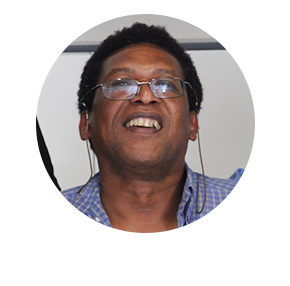
Click Here
Dr. Adrian Sayers

Click Here
Dr Adrian Sayers is a social and economic development, planning and labour market researcher and practitioner. Since its establishment in July 2012, he has been a founding director and shareholder of Tri DEV Worx AFP Pty Ltd, a specialist research consultancy that pursues sustainable socio-economic development through the application of innovative solutions. Adrian was awarded a doctorate in 2006 by the University of Cape Town for a dissertation titled: Development, Transformation and Freedom: Critical Perspectives on Development, Transformation and Freedom with reference to a Social and Economic History of the State, Markets and Civil Practices in the Western Cape of South Africa, c. 1910-1948. As a result of his subsequent practical research explorations, he was invited to contribute to prominent international scholarly events such as the International Conference on Emerging Directions in Decentralized Participatory Planning: Theory, Practice and Roles of the Planner, 2011, and the Development and Inequality in the Global South Research Institute, 2009.
Dr Sayers is the founding Executive Director of the Western Cape Provincial Development Council, a position which he held for over a decade over the period 1996-2008. Between 2008 and 2012 he has served as a technical consultant and facilitator for the Mpumalanga Office of the Premier and GIZ to assist in establishing a provincial development council in Mpumalanga.
Adrian is also a former Western Cape Regional Secretary and National Executive Committee and Central Committee member and Regional Education Officer (Free State, Western and Northern Cape) of NUMSA and COSATU Regional Economic Development Working Group Co-ordinator. Between 1989 and 1994 he was also a co-chairperson of the Western Cape Economic Development Forum. Before his involvement with NUMSA he also served as a trade unionist with SAMWU-CTMWA and CCAWUSA. While still at university he also worked as a researcher with the Southern Africa Labour Development Research Unit (SALDRU), School of Economics, UCT.
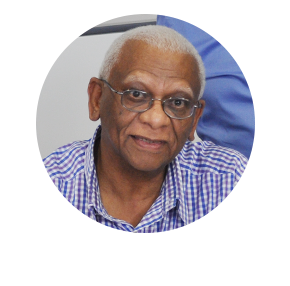
Click Here
Prof. John Volmink

Click Here
John Volmink was born and raised in Cape Town, South Africa. He started his academic career at the University of the Western Cape where he graduated with a BSc degree in mathematics, physics and applied mathematics, and a BSc (Hons) in Physics. He later completed a Masters and PhD in Mathematics Education at Cornell University, Ithaca NY, United States of America.
John started his professional career as a high school teacher and later became the Head of Mathematics at the then Peninsula Technikon. He also held various other teaching positions at other institutions, including the University of Western Cape, University of Cape Town and Cornell University. After 10 years in the USA and a brief stay at the University of Botswana, Gaborone, he returned to South Africa in 1991. He got involved in development initiatives as the Director of the Centre for Advancement of Science and Mathematics Education in Durban. John later served as Campus Vice-Principal at the then University of Natal and thereafter, Pro-Vice Chancellor: Partnerships at the University of KwaZulu-Natal until 2004. During his term at the UKZN he was responsible for partnership programs with business, government and the community and served as the Executive Director of the Development Foundation of the University. John has also been centrally involved in curriculum reform in post-apartheid South Africa and has been asked by all four Ministers of Education to play a leading role in the transformation of education in the new South Africa. He served as the Chairperson of the Umalusi Council for many years, and more recently, he also served for two years as the CEO of the National Education Evaluation and Development Unit (NEEDU).
John is currently the Chairperson of MIET Africa and continues to provide leadership on the boards of several other South African and international non-governmental development organizations involved in education, health and community upliftment. He has also been involved in a Leadership Development Program for members of parliament and holds the position of Extraordinary Professor at North West University, Mafikeng Campus. After 25 years away from Cape Town, John returned and refurbished the house in Athlone in which he grew up and where he now lives again. John and his late wife Engela, who was also a teacher, worked together in voluntary community-based educational projects in the Athlone area with a focus on young people.

Click Here
Ncebakazi Mnukwana

Click Here
Ncebakazi Mnukwana is a music educator who spends most of her days training music teachers, teaching ethnomusicology and World Music at the Konservatorium at Stellenbosch University, South Africa. When awarded an academic scholarship to study towards a Masters in multicultural education at the Oslo University College, Bakazi became the musical director of Inkululeko (2002 – 2005), a choral ensemble formed by the South African political exiles in Oslo, Norway in the late 1980s. Back in Cape Town, she volunteered as the vocal instructor and conductor for The Pilgramage Ensemble (2009 – 2012) at the Mowbray Seventh-Day Adventist Church.
Currently, she is reading for her PhD at the University of Cape Town with a special focus in umngqokolo, the overtone singing of Xhosa-speaking adolescent girls. In 2007, Bakazi was awarded the Research Associateship and AW Mellon Foundation Scholarship by the University of Cape Town. At Stellenbosch University, Bakazi was the recipient of the AW Mellon Doctoral funding, is a mentee in the AW Mellon Mentorship Programme and was a recipient of the Rector’s Award in 2015. She is an active member of the Cape Cultural Collective, where she has been singing in the multilingual choir Rosa since 2012. She was an indigenous instrumental soundscaper for uHadi (2013), a poetry and music stage production commissioned for the French South Africa Season 2012-2013. She did the same for Igqhiya Emnyama (2015), and for the Infecting the City Festival in Cape Town, and Insurrections III: The Storming (2015).

Click Here
Dr. Bernard Fanaroff

Click Here
Bernard Fanaroff has a BSc Hons in Physics from the University of the Witwatersrand and a PhD in Radio Astronomy from Cambridge University. He was elected a Fellow of the Royal Society of London in 2018 and an International Member of the American Philosophical Society, America’s oldest learned society, in 2022. He has been awarded the national Order of Mapungubwe, the Karl Jansky Lectureship, the President’s Award of the Institute of Electrical Engineering, an award for Science Diplomacy from the Minister for Science and Technology, a Lifetime Achievement Award from the National Research Foundation, the Science for Society Gold Medal of the Academy of Science of South Africa and seven honorary degrees.
He was a national organiser of the Metal and Allied Workers Union, a national secretary of the National Union of Metalworkers of South Africa, the Deputy Director General of President Mandela’s Office of the President, Head of the Office for the Reconstruction and Development Programme, Deputy Director General of the Secretariat for Safety and Security and Chairman of the Integrated Justice System Board. He was the Director of the South African Square Kilometre Array Telescope Project, which built the MeerKAT radio telescope in the Karoo. He is an adviser to the Minister for Trade, Industry and Competition.
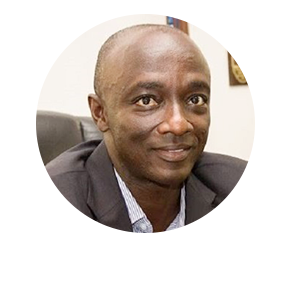
Click Here
Edward Boateng

Click Here
Edward Boateng is the Executive Chairman and Group CEO of Global Media Alliance, a Pan African integrated media and entertainment company. Edward is the past (August 2007 to December 2009) Chairman of the Millennium Development Authority Ghana (MiDA He also served on the Board of National Communications Authority of Ghana (NCA) from 2001 to 2004 and was reelected from 2006 – 2009. Amongst others, he has also served on the Board of Africa Economic Forum (1999-2003) and the Foundation for Africa Media Excellence and in an advisory capacity on the Millennium Cities, Kumasi Development Initiative.
Previously as the Africa Head of Turner Broadcasting Systems (TBS), he led the drive to establish TBS brands such as CNN, Cartoon Network and Turner Classic Movies into household names in Africa. He was the initiator of the weekly Inside Africa Program that chronicles the stories of Africa on CNN every week. He holds a BA from the Kwame Nkrumah University of Science and Technology, an MBA from Clark Atlanta University and a Diploma in Leadership Management from Yale University.
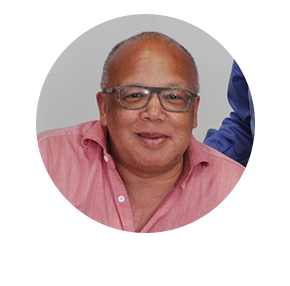
Click Here
Gary Jansen

Click Here
Gary Jansen has practiced law since 1984. He was articled to Y. Ebrahim and Co. where he established himself as a Human Rights Lawyer, working to assist communities in a range of political issues.
Gary’s work has continued to be focussed on business development and using his skills to unlock opportunities for broad-based black economic empowerment and ensuring that successful businessmen from local communities continue to contribute to community development.
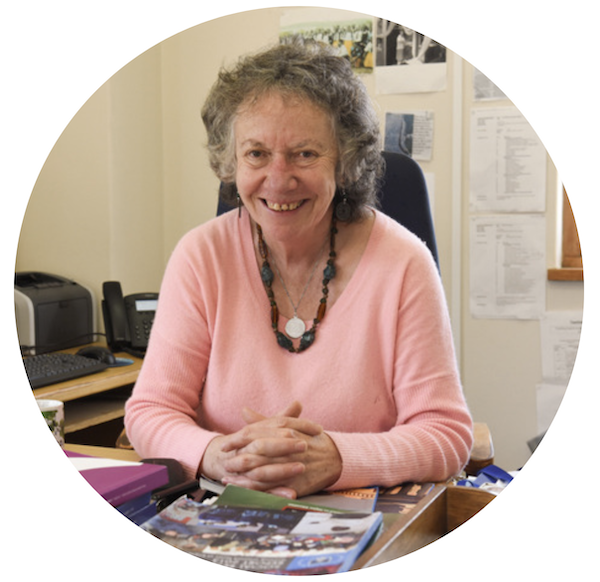
Click Here
Judy Favish

Click Here
Judy Favish has an MA in continuing education from the University of Warwick, a Postgraduate Diploma in Postgraduate Diploma in Policy, Leadership and Management Studies in Higher Education and a B A Honours in Applied Linguistics. In 2016 she retired as director of UCT’s Institutional Planning Department (IPD) after a career that pursued social justice through working in different fields of education and in different types of institutions, including trade unions, NGOs, the Gauteng Department of Education, the Cape Peninsula University of Technology and the University of Cape Town (UCT). She has a long history of national involvement in policy development.
After retiring Judy worked as a facilitator for a national Mandela Initiative on Poverty and Inequality, located in the South African Labour Development Research Unit at UCT and is now a Research Associate in a Post School Project in that Unit. She is currently working for the Department of Higher Education and Training and the Council on Higher Education as a consultant. She has served on many boards, including the Children’s Institute, Tsiba, the Higher Education Quality Committee, the Learning Cape, Sothemba Aids Action and the Centre for Extended Learning.

Click Here
Mansoor Jaffer

Click Here
Mansoor Jaffer started his career as a court reporter at the Cape Argus in 1980. The deep injustices of apartheid drew him into political activism and journalism. In 1983, he took up employment with Grassroots, an anti-apartheid newspaper. During his five-years at the paper, he moved to Oudtshoorn for six months where he helped to establish an Afrikaans paper based on the Grassroots model.
He was held in detention on two occasions in the 80s. In 1989, he joined a trade union as its media officer and thereafter became the sports editor of South weekly newspaper. He worked for the Truth and Reconciliation Commission as a media officer before his appointment as deputy editor of Cape Community Newspapers in 1997. He took up a position as Director of Communications in the Western Cape Provincial government from 2006 and became an independent communication consult from 2009, working on various media and research projects. He was the media and parliamentary liaison officer for the Deputy Minister of Home Affairs from 2017 to 2019. He plays music in a band and is a founder member of the Cape Cultural Collective and the Rosa Choir, a multilingual choral group.

Click Here
Dr. Lilian Dudley

Click Here
Dr Lilian Dudley is a Public Health Medicine Specialist, emeritus associate professor and previous Head of Division of Health Systems and Public Health in the Department of Global Health, Stellenbosch University (SU). At SU she established several new postgraduate programmes in public health, health systems research and health leadership and management, and led the renewal of the teaching of public health in the undergraduate medical curriculum. Her research interests include health systems strengthening and quality of care, particularly for TB, HIV and chronic diseases; health information systems; and capacity development of health professionals and managers in LMIC’s.
Prior to her appointment at SU, she was the CEO of Health Systems Trust (HST), and spent many years as a senior manager of health services in local government and Provincial Health Departments. She has served on various national committees including the National Lancet Commission on Quality Health Systems (2017 – 2018); is a past president of the Epidemiological Society of SA (ESSA), the Public Health Association of SA (PHASA), and the TB Alliance DOTS Support Association (TADSA). She has served on the Board of HISP (Health Information Systems Programme); and was a member of the Council for Public Health Medicine of South Africa.
She is a past Fellow of the Takemi International Health Program, Harvard Chan School of Public Health, and served on several international bodies including WHO committees for TB and health systems research.
